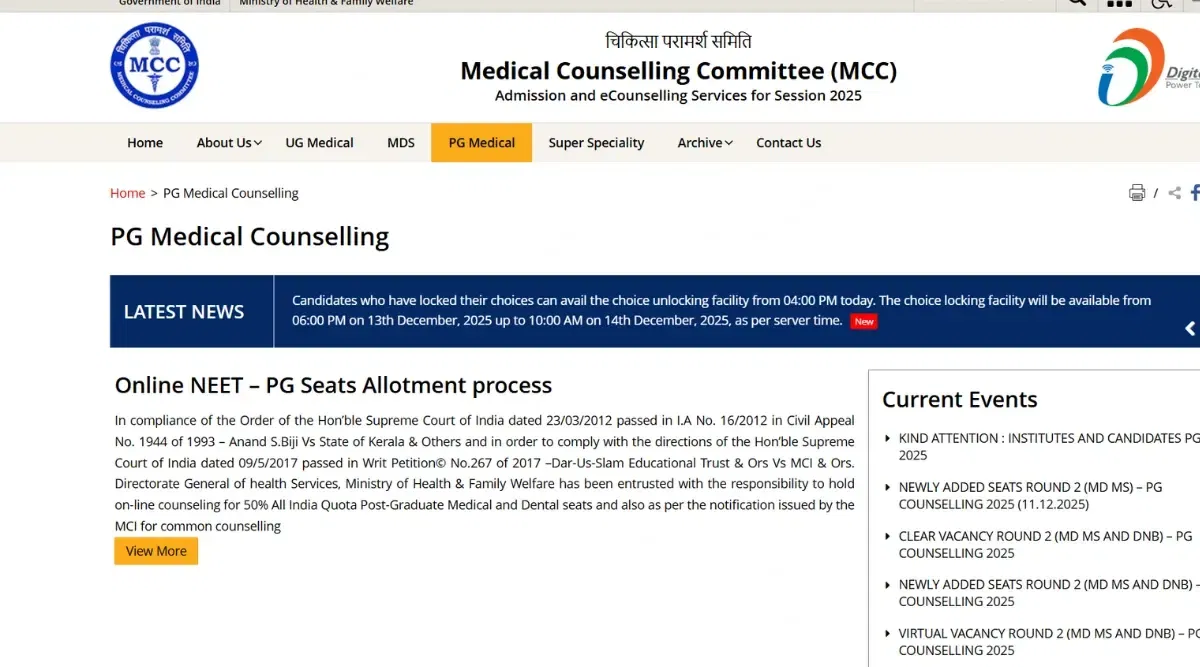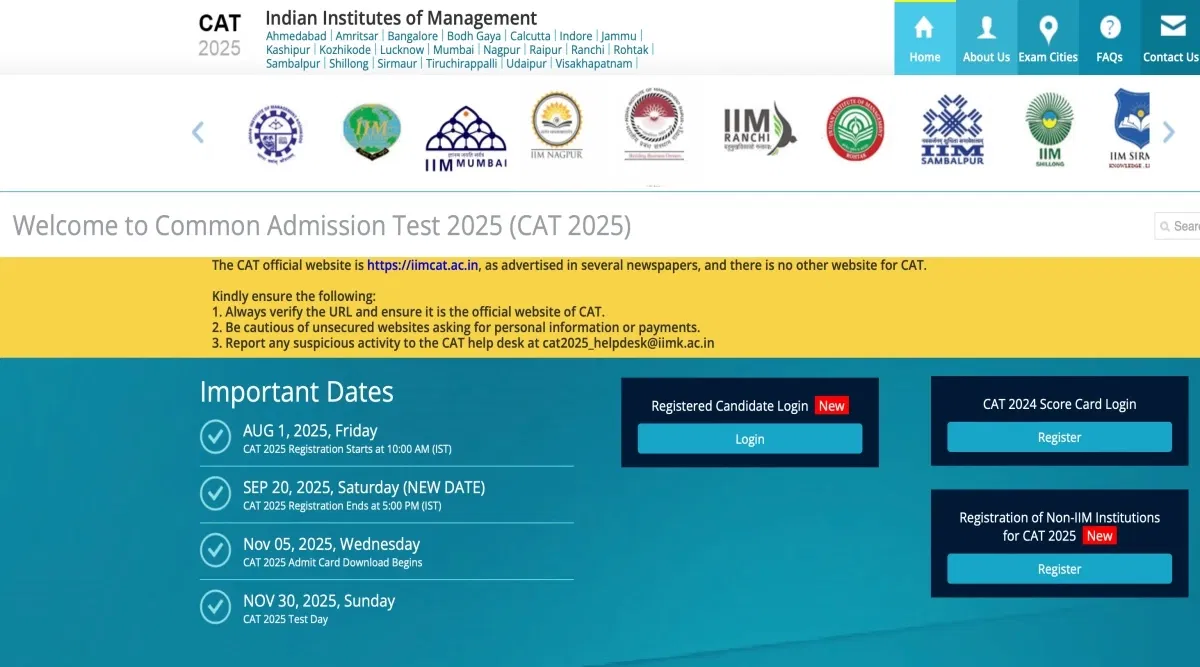Germany has the best institutions for science and technology, as well as education and research. German engineering is renowned world over, and studying MS in Germany can provide ample opportunities for employment and research in science and technology.
Table of Contents
- Top Universities in Germany for MS
- Why Study MS in Germany?
- Studying MS in Germany
- Admission Process for MS in Germany
- Admission Requirements for MS in Germany
- Intakes and Application Deadlines in Germany for MS
- Cost of Studying MS in Germany
- MS in Germany: Funding Options
- Scope after Studying MS in Germany
For Indian students, studying MS in Germany is a viable option over countries like the US and UK due to Germany’s affordable education and cost of living. MS degrees in Germany typically take one to two years to complete (2-4 semesters). As most German universities are state-funded, there are no tuition fees for master's programs.
Some of the most popular master's programs in Germany are offered in subject areas like electrical engineering, chemical engineering, computer science, automotive engineering, etc. For international students looking to pursue an MS in Germany, this article will attempt to provide all the necessary details in selecting a university, the eligibility criteria, the application process, and the best universities in Germany for MS.
Top Universities in Germany for MS
Some of the top universities offering MS in Germany are listed in the table below, along with the rankings, cost of studying (in EUR), and the popular programs offered at these institutions:
| University | Global Ranking (THE 2022) | Cost of Study (in EUR) | Popular MS Programs |
| Ludwig Maximilian University, Munich | 32 | 256 | English, CS, Data Science, Management, Economics |
| Technical University of Munich | 38 | 145 | Management, Data Science, Electrical Engineering, Computer Science |
| Heidelberg University | 42 | 380 | Physics, Data Science, English, Electrical Engineering, Economics |
| Humboldt University Berlin | 74 | 315 | Economics, English, Social Work, Data Science |
| Charite Universitatmedizin Berlin | 73 | 2500 | Neuroscience, Epidemiology, Medicine, Health Science |
| University of Freiburg | 108 | 2800 | English, CS, Robotics, Embedded Systems |
| University of Tubingen | 78 | 3000 | Machine learning, CS, Economics, English |
| RWTH Aachen | 108 | 290 | CS, Automotive Engineering, Mechanical Engineering, Data Science |
| Technical University Berlin | 139 | 1200 | Mechanical Engineering, CS, Energy Engineering |
| Free University of Berlin | 83 | 680 | English, Psychology, CS, Management |
| University of Bonn | 112 | 575 | CS, Biotechnology, English, Economics |
German has over 500 universities offering close to 19000 degree programs. Out of these, 400 are state-funded, while 120 are self-funded or private universities. Universities for sciences are divided into to types in Germany, which are:
- “Hochschule” or Technical Universities
- “Fachhochschule” or Universities of Applied Sciences
Acceptance Rate
The following table shows the acceptance rates and average fees for masters programs in Germany at some of the top German universities:
|
University |
Acceptance Rate MS |
Average Fees (INR) |
|
Technical University of Munich |
8% |
10,737 |
|
Ruprecht-Karls-Universität Heidelberg |
17% |
28,484 |
|
Ludwig-Maximilians-Universität München |
10% |
21,400 |
|
Freie Universitaet Berlin |
15% |
6,57,237 |
|
Humboldt-Universität zu Berlin |
18% |
NA |
|
Karlsruhe Institute of Technology |
20%-30% |
2,46,072 - 14,32,441 |
|
Technische Universität Berlin |
8% |
9,70,058 |
|
RWTH Aachen University |
10% |
19,10,962 |
|
IU International University of Applied Sciences |
70%-80% |
12,40,000 |
Why Study MS in Germany?
As mentioned before, Germany is affordable compared to countries like the US and UK when it comes to the cost of education and living expenses. The opportunities for employment after graduation are also numerous. Of the 250,000 international students in Germany, 37% opt for engineering programs as Germany is the home to some of the best automotive engineering in the world. Upon completion of their course, a student can extend their visa for up to 18 months.
Studying in Germany can be a life-changing experience for the education and employment opportunities and the culture, food, sights, and landscapes. Germany has one of the most organized societies globally with a focus on human development, thus making it a wholesome experience for international students living in Germany.
Studying MS in Germany
An MS in Germany is generally for one to two years or two to four semesters. Most German universities are state-funded, so students are exempted from paying tuition fees for Master’s programs. However, international students have to pay enrollment fees that can range from between EUR 8,313 and EUR 16,262, depending on the type of program the student opts for. If for some reason, students do not end up finishing the course within the stipulated time, they will be required to pay additional fees per semester. The additional fees per semester can range from between EUR 400 and EUR 500.
Germany is renowned for its cutting-edge engineering. Students pursuing MS in Germany can opt for graduate courses in applied sciences such as Computer Science, Electrical Engineering, Automotive Engineering, and Chemical Engineering, among others. Students can apply for Master’s programs in research institutes, technical universities, universities of applied sciences, and arts, film, and music institutions.
Admission Process for MS in Germany
Before applying to a university in Germany, students need to scope out the desired course and university and fulfil certain requirements before getting to the application itself. The step-wise admission process for applying for an MS in Germany are as follows:
- Course Evaluation
- Submit GRE/GATE & IELTS/TOEFL Scores
- University Selection
- Contact the University
- Get Transcripts Attested
- Letter of Intent
- A1 in German Language Proficiency
- Prepare a 1-page Resume
- Use Portals like Uni-Assist for Help
Course Evaluation
The first step for a student in applying for an MS in Germany is to figure out the type of program they are interested in. Germany has many specialized courses in the different fields of engineering, computer sciences, and energy studies.
Students can find all the information online about the various universities and programs that they offer. Based on the eligibility criteria and program requirements, students can decide what course they want to pursue. With a lock on a particular program, a student will map out the following steps in the admission process.
Submit GRE/GATE & IELTS/TOEFL Scores
Germany has set the standard quite high for admissions into its universities, and admissions are highly competitive. Preference is given to subject-matter experts with exceptional academic backgrounds and research/work experience.
Students with high GRE/GATE scores are given preference over students who have a low score or have not attempted the exams.
University Selection
The next step for the student is to select a university. Students can make their choices based on:
- Inclination towards research
- Profile
- Budget
Contact the University
Once a student has chosen their desired university, they are advised to get in touch with the department and contact specific professors who share the same academic interests, thereby establishing initial contact before reaching the university.
Get Transcripts Attested
Some universities in Germany will require students to get their undergraduate degrees attested by the German Embassy. The number of days to get the transcripts attested will vary depending on the location of the German Embassy.
Letter of Intent
Similar to an SOP in a visa application, some universities in Germany will require students to send a Letter of Intent stating the reason for choosing the desired course and explaining why they should be selected for the program.
A1 in German Language Proficiency
When migrating to a foreign country, it always makes sense to learn the local language (and customs) of that place before making the final move. Since Germany's first language is German, it makes sense to gain a certain proficiency in speaking and writing in German. Getting an A1 certification will greatly improve students' chances of being accepted into the program of their choice at their desired university.
Prepare a 1-page Resume
It helps students to prepare a 1-page resume detailing their qualifications and achievements.
Use Portals like Uni-Assist for Help
Universities in Germany, unlike the US, do not have a centralized portal that can help students navigate the academic landscape in Germany. Students are expected to apply to courses and universities as per their preferences individually.
Some universities use a portal called “Uni-Assist” to help students compile and screen their applications before sending them to universities to make their final decisions. Using this portal will entail a processing fee which students will have to pay.
Most universities have an application fee of EUR 50. Applications through Uni-Assist amount to EUR 75, and additional processing fees amount to EUR 15 per subsequent application.
Admission Requirements for MS in Germany
The admission requirements for studying MS in Germany are detailed in the table below:
| Admission Requirement | Score |
| GRE | 310+ |
| GATE | Minimum qualifying score that year |
| IELTS | 7+ |
| TOEFL | 90+ |
| GPA | 2.7 out of 6.0 |
Intakes and Application Deadlines in Germany for MS
Generally, MS admissions in Germany are offered during two sessions - winter and summer. For most public universities in Germany, MS application deadlines are in July (Winter session) and January (Summer session), whereas for Private Universities, deadlines vary from one university to another. Following are the application deadlines of some top universities offering MS in Germany:
|
University |
Deadlines |
|
Technical University of Munich |
May 15, 2022 (Winter) |
|
Ludwig Maximilians University Munich |
July 15, 2022 (Winter) |
|
Technical University Berlin |
August 31, 2022 (Winter) and February 28, 2022 (Summer) |
|
Heidelberg University |
July 15, 2022 (Winter)and January 15, 2022 (Summer) |
|
Humboldt University |
July 15, 2022 (Winter) and January 15, 2022 (Summer) |
|
University of Freiburg |
May 31, 2022 (Winter) and December 15, 2021 (Summer) |
|
Free University Berlin |
August 15, 2022 (Winter) |
Cost of Studying MS in Germany
As mentioned below, studying in Germany can prove to be a low-cost affair compared to educational destinations like the US or UK. Even in Europe, Germany is more affordable than the other top destinations for education in the EU. Overall, the total expenditures associated with pursuing an MS in a German university can be divided into three types of expenditures, which are:
Pre-Arrival Costs
Candidates will have to ensure that these costs are met before moving to Germany. While applying for their student visa, students will have to prove to the visa officer that they have a minimum of EUR 10,236 in their bank account to qualify for a German student visa. From there on, the various pre-arrival costs are as follows:
| Type of Expense | Cost (in EUR) |
| German Student Visa Application Fee | 60 - 75 |
| Health Insurance | 80 |
| IELTS Fee (if not TOEFL) | 166 - 170 |
| TOEFL Fee (if not IELTS) | 136 - 224 |
| GRE Fee (if not GATE) | 149 - 192 |
| GATE Fee (if not GRE) | 192 |
Tuition Fees
Most state-funded universities in Germany have negligible or no tuition fees. However, students have to pay the enrollment fees for the course. For Indian students, the tuition fees can be as low as EUR 131 or as high as EUR 3042, spending the choice of program and university preference. The table below shows the minimum and maximum fees for the most sought after programs in German universities:
| Course Name | Minimum Fees (in EUR) | Maximum Fees (in EUR) |
| Civil Engineering | 0 | 3000 |
| Computer Science | 0 | 3300 |
| Biotechnology | 312 | 3000 |
| Mechanical Engineering | 260 | 3000 |
| Law | 621 | 10545 |
| Automotive Engineering | 258 | 19500 |
Living Expenses
On average, students spend between EUR 850 and EUR 1116 on living expenses every month. These include housing, food, travel, stationery, health insurance, and miscellaneous expenses. The cost of living as a student in Germany is detailed in the table below:
| Type of Expense | Cost in EUR |
| Housing | 331 - 930 |
| Food | 135 - 397 |
| Travel | 20 |
| Stationary and study materials | 93 |
| Health insurance | 76 |
| Miscellaneous | 30 |
MS in Germany: Funding Options
Even though education in Germany is relatively cheap in comparison to countries like the US and UK, it can still amount to being a costly affair for students, particularly for students from economically weaker sections, or for students from developing nations. Such students can avail financial aid in the form of student loans and scholarships. Student loans cover all the expenses related to tuition, accommodation and living in Germany. Scholarships in Germany provide a monthly stipend to students to cover their various expenses.
Student Loans
For students from economically weaker sections, there is always the option of extra help in student loans. To be eligible to apply for a student loan, the following criteria must be fulfilled:
- The accepting university or course must be recognized by the funding institution and must be eligible for the grant
- The student must be 18 years of age, and the parent or guardian should apply for the loan
- The course opted for must be a job-oriented course
Student loans do not cover just the tuition fee and other expenses that students may encounter during their stay in Germany. The loan amount is extended towards the academic expenses and not the personal expenses of the student. The student loan covers the following expenses:
- Tuition fees
- Housing/Accommodation expenses
- Caution/Security deposit
- Travel expenses
- Expenses incurred in study tours and project work
- Stationary (and equipment) expenses
- Miscellaneous expenses that would enable the student to complete the course
Scholarships
Students can also opt for the scholarship route. The list of the most prestigious scholarships in Germany are as follows:
| Scholarship | Features | Scholarship Amount Awarded (per month in EUR) |
| The DAAD Scholarships |
|
693 |
| The Deutschlandstipendium Program |
|
277 |
| The Friedrich Ebert Stiftung |
|
1000 |
| Heinrich Böll Foundation |
|
693 |
Scope after Studying MS in Germany
Germany is one of the wealthier EU nations with educational institutions geared towards producing some of the most productive employees in the world. Germany has an unemployment rate of 3.6%, which is lower than many other developed countries, which means that graduates have a high chance of securing a well-paying job after completing their studies.
If a student chooses to study further, for a doctoral degree or a PhD program, Germany is rife with plenty of programs in that regard. Germany ranks #16 amongst the highest GNI per capita, which means that students have an opportunity to secure a well-paying job and bright future in the EU nation.
There are many opportunities that a graduate of MS in Germany can avail. Having a Master’s degree from Germany does not only open the window of opportunity to earn well in Germany but across the world. The table below contains the list of jobs and their salaries that students of MS in Germany can opt for after graduation.
| Job Profile | Renumeration (in EU) |
| Pharmaceutical Researcher | 150,000 |
| Electrical Engineer | 136,000 |
| Data Scientist | 135,000 |
| Mechanical Engineer | 133,000 |
| Civil Engineer | 121,000 |
| Biomedical Engineer | 115,000 |
| Automotive Engineer | 111,000 |























POST YOUR COMMENT